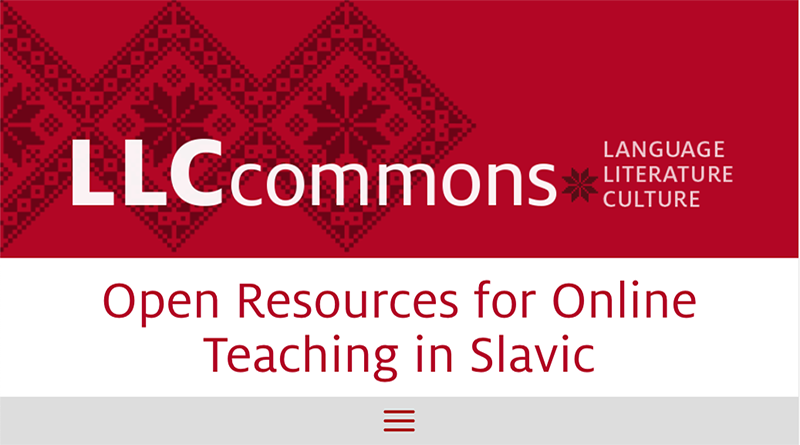
The LLC Commons: an Open-Access Repository of Online Materials for Russian Learners and Teachers

by Shannon Donnally Spasova, Assistant Professor of Russian, Michigan State University
|

Liudmila Klimanova, Assistant Professor of SLA and Technology, University of Arizona
|
DOI: https://www.doi.org/10.69732/BGHD6954
Some advocates of online and hybrid courses believe that online courses can save time and money, in part because of the reusability of some of the materials developed for these classes. Though not always the case, in some instances, it is a possibility. One of these instances is if materials can be reused across sections of language courses. This may be logistically relatively easy for commonly taught languages like Spanish and French that are supervised within a single institution and department. Since less commonly taught languages have fewer instructors and course sections per institution (in many cases only one), in order for course materials developed for these languages to be reused, the modules would, in most cases, have to be shared between institutions. This, of course, is much more challenging because instructors at one institution may not necessarily know what people in other places are doing, and schedules, approaches, and standards can be quite divergent. Because developing high-quality online materials that can endure over time is quite time-consuming, sharing materials among institutions is a good way to mitigate the investment by any one institution. We, – Shannon Donnally Spasova from Michigan State University, and Liudmila Klimanova from the University of Arizona, had this problem in mind when we created the LLC Commons (LLC stands for Language, Literature, Culture), funded by a seed grant from CERCLL (the Center for Educational Resources in Culture, Language and Literacy) at the University of Arizona.
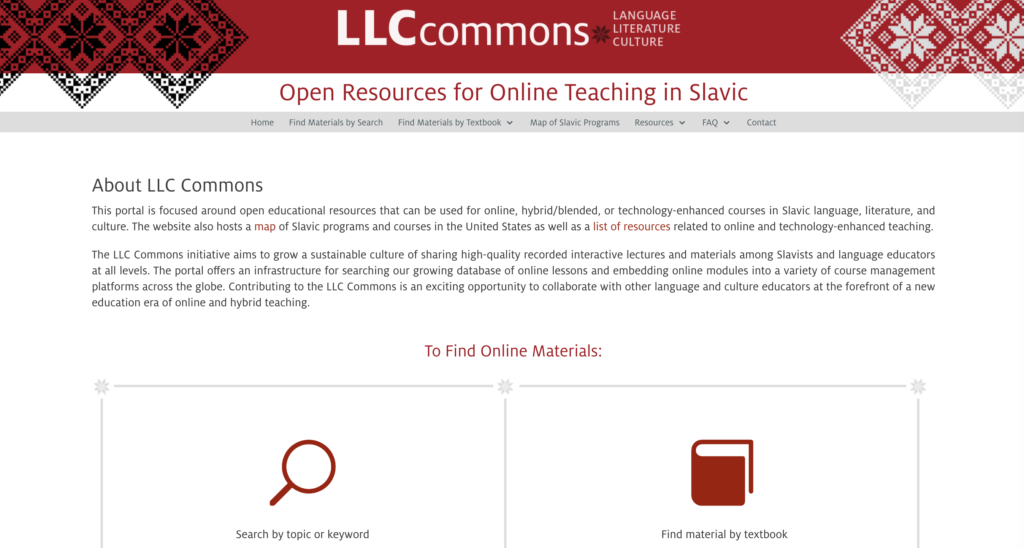
Picture 1 – Home page of LLC Commons repository
The website (built with WordPress) organizes a set of online Russian language modules (at this moment we have almost 400, with more to come) that have been developed at the University of Arizona, Michigan State University, as well as some from the Middlebury College School of Russian. Modules are organized in several different ways.
Users can search the modules using a keyword search, categories (level, activity type, format, grammar, vocabulary, pronunciation, orthography), tags, or they can be found organized according to the sequence found in popular textbooks.
Our initial collection is mostly for lower-level Russian language courses (elementary and intermediate Russian courses), but we hope to grow our collection and add more upper-level materials as well as those for literature and culture courses or other Slavic languages.
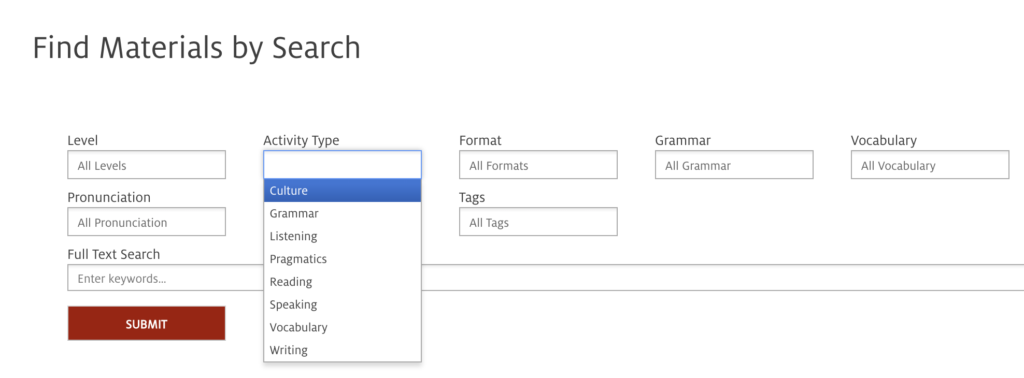
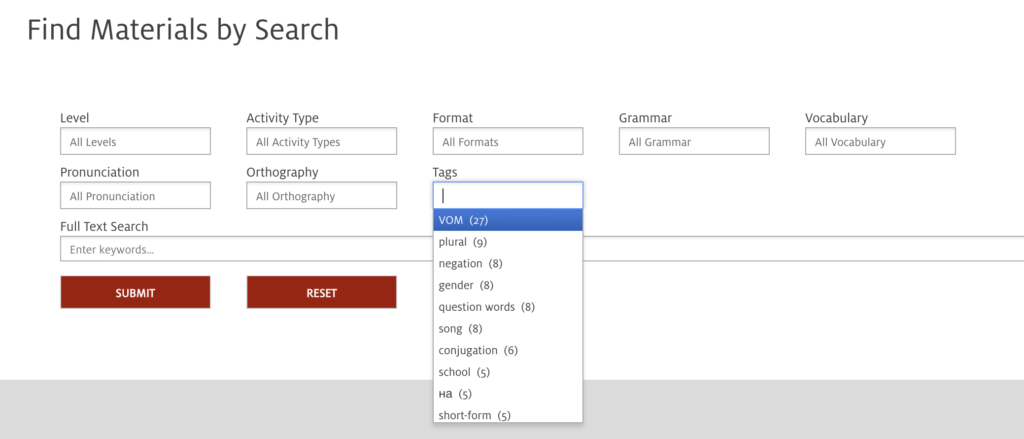
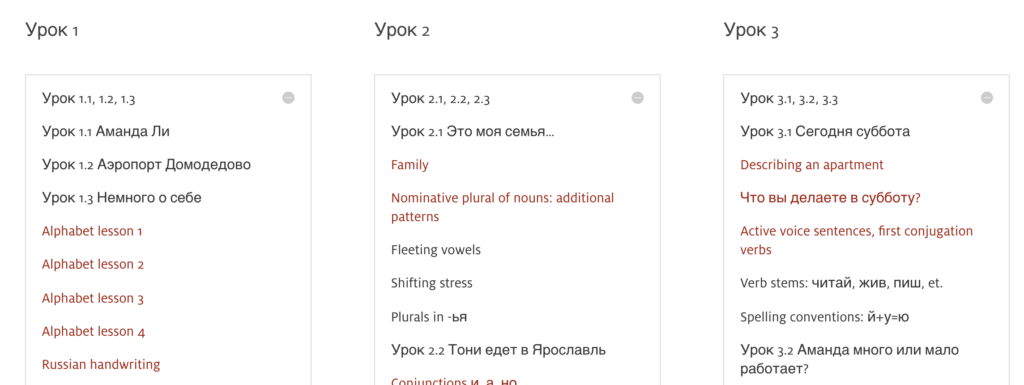
The online lessons have generally been produced with the following principles in mind: interactivity, multimodality, modifiability, and portability. The modules are mostly interactive videos made using H5P, though there are also YouTube videos as well as other types of activities. Interactive videos allow students to test themselves and get immediate and targeted feedback, giving students the ability to be more independent with their learning and more flexibility in how and when they do their coursework. We also carefully considered methodological issues in the design of materials for different language levels. Activities and tutorials for more advanced students, for example, target more abstract concepts, reading comprehension, and more complex sentence structures. Interactive videos also offer the ability to give needed scaffolding for authentic materials without interrupting their flow, as well as the ability to mix various types of activities that best suit the various parts of the video. This article about creating H5P interactive videos can help you get started with the activity type.
One of the goals of the project was to offer materials that are as flexible as possible. The topics are modular, with the goal of being able to fit into various sequences and with a variety of textbooks. We anticipate that some instructors may want to modify the materials to better fit their own students, curriculum, or teaching style. The materials on the website are all licensed under a Creative Commons license, which allows educators to revise, reuse, and redistribute the lessons without dealing with restrictive copyright, while at the same time giving credit to the authors of the lessons. The H5P activities are relatively easy to modify to meet the needs of a particular class of students. The website includes instructions for how to do this and how to host the activities on other websites and LMSs (learning management systems).
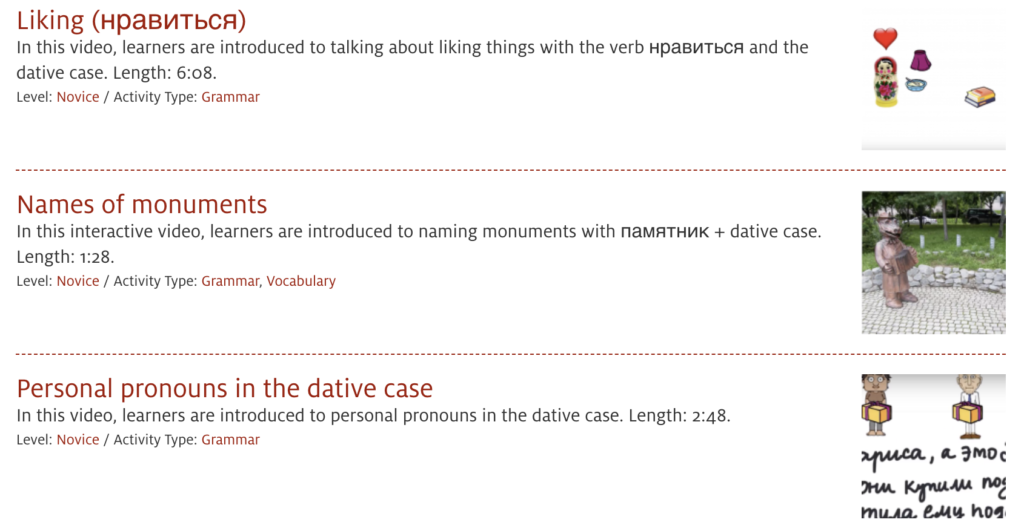
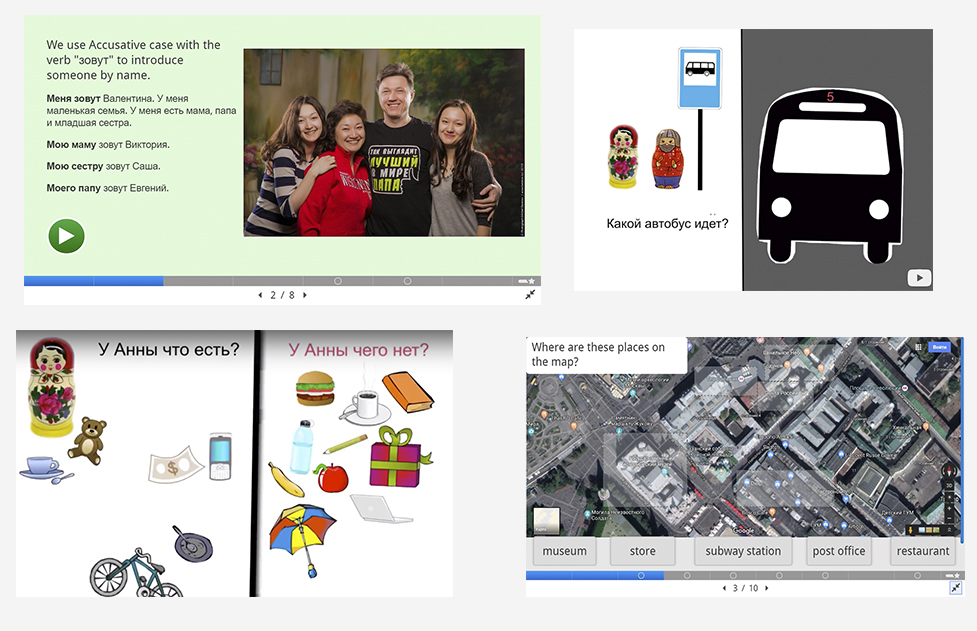
The LLC Commons website also provides an interactive GIS map of programs in Slavic languages in the United States. Programs are marked on the map by colored pins based on the type of institution. Each program pin opens a profile page showing the program’s address, type of program, and webpage. The profile function allows video embeds, and one of the goals for the future is to invite representatives from various programs to create video introductions to their course offerings, possibly highlighting online and hybrid offerings, in the hopes that those looking for courses not taught in their geographical area will be able to connect with those that might be able to provide them with access to courses.
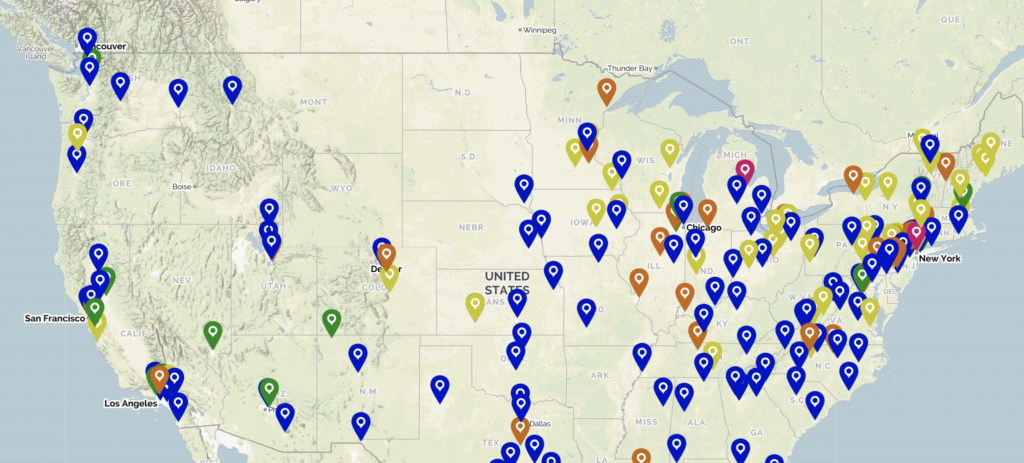
The LLC Commons Portal was created in the spirit of the Open Education Movement, a global movement focused on the creation and sharing of open educational resources (OER) and open education practices (OEP), open knowledge sharing, and building globally accessible infrastructures to support open, and efficient, knowledge production and distribution. The corollary of Open Education is to promote open access to educational opportunities, and collaborative knowledge sharing and create “a context where freely available online content and services … are taken as the norm” (Beetham, Falconer, McGill, & Littlejohn, 2012, p. 1) – a context that empowers educators to benefit from the best ideas and practices of their colleagues at the national and global level. We hope that the LLC Commons will continue to grow as an open educational resource and practice, increasing efficiency by allowing the sharing of materials across institutions. We are also hoping to develop a system to allow teachers of Slavic languages, literature, and culture courses that use online and hybrid curriculum to contribute their materials to the repository for the benefit of the wider teaching community. At some point we may consider expanding the site to include other languages. If you or your language center are interested in collaborating with us on this project, or if you are interested in contributing your materials to our collection, please contact us.
Shannon Donnally Spasova spasova@msu.edu
Liudmila Klimanova klimanova@email.arizona.edu
References
Beetham, H., Falconer, I., McGill, L. and Littlejohn, A. Open practices: briefing paper. JISC, 2012 https://oersynth.pbworks.com/w/page/51668352/OpenPracticesBriefing
